My first prayer to a pagan god was not to the Horned God or the Mother Goddess, it wasn’t even to Dionysus or Brigit, it was to the sky-god Zeus. I still remember that day rather clearly. It was mid-February in East Peoria Illinois and I had the day off from school due to Abraham Lincoln’s Birthday. For February it was relatively warm, probably fifty degrees, windy, but with a lot of sun. Before hopping onto my Green Machine Big Wheel to ride around my neighborhood I looked up at the sky and mumbled a few words to Zeus.
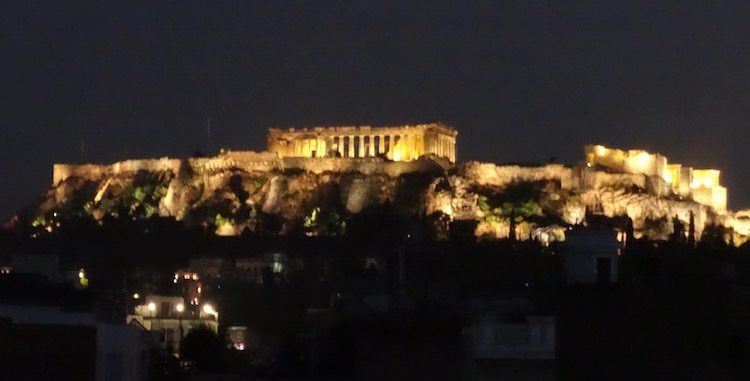
I don’t remember exactly what I said that day, but I think I thanked him for the lovely day and all the sunshine. It seemed strange to me that no one worshipped the Greek Gods anymore. Those gods did such amazing things! And they were all far more interesting than the Bible. Ever read the Bible, FOR FUN? Eeee gads!
I was pretty obsessed with the Greek Gods back in those days. Most of my free time in class was spent reading their myths, and I remember begging my Dad to take me to see the original Clash of the Titans* too. (I was obsessed with lots of things in elementary school, in order: dinosaurs, Greek mythology, and then cryptozoology/mysteries-in other words I was destined to end up here.) It didn’t hurt that my name is Jason, linking me in some way to the Argonauts and all that.
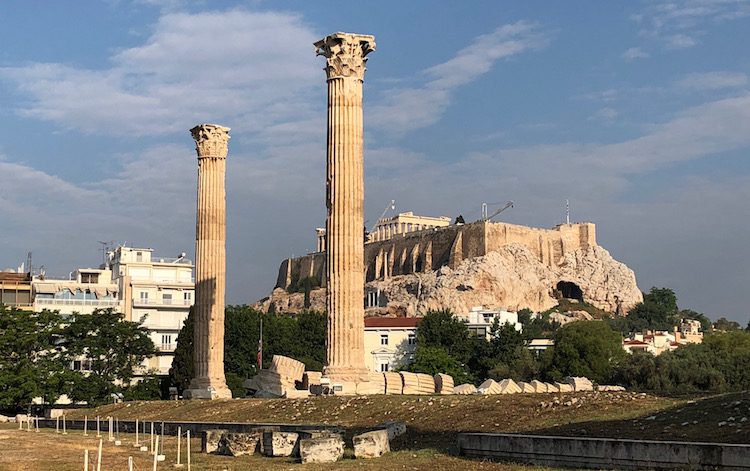
In ninth grade I dressed up as a Zeus for a high school English assignment, but after that project we mostly lost touch. When I officially began walking on the Pagan Path several years later Zeus was mostly off my radar. I was very much interested in goddesses, and Zeus had some issues in that department. (Understatement!) Besides, when I began exploring male deities Pan and Dionysus were far more fun, and spoke to my own immediate experiences a little bit more.
But there’s still something about Zeus that I find captivating. He doesn’t occupy any of the altars in my house, but he’s someone I often find myself thinking about. One of the things about Zeus that fascinates me is that his origins lie far outside of Greece. His beginnings are tied up in the migration of the Indo-European peoples across Eurasia, and because of that he shares some DNA with other deities dedicated to the sky.

My experiences with both Father-Gods and Sky-Gods is rather negligible. No deity who might be thought of that way has really ever called out to me. Instead I’ve always been attracted (and called to) by the outsiders. Gods like Pan and Dionysus who are as comfortable on terra firma as they might be on Mount Olympus, and Cernunnos-the quintessential outsider who even lacks an ancient mythology. Zeus has always felt far too majestic for me too, the only throne in my house has a handle on it to make flushing easier.
If you are a frequent reader of this blog you are probably aware that my wife Ari and I recently visited Greece. While there Zeus was hard to escape. We found him in Athens and on the island of Crete, and even in places that weren’t “his” he casts a long shadow. Pallas Athena is his daughter after all, and Hephaestus and Apollo are his sons. Zeus might not be the reason for Delphi’s existence, but it wouldn’t be there without him (and his philandering.)
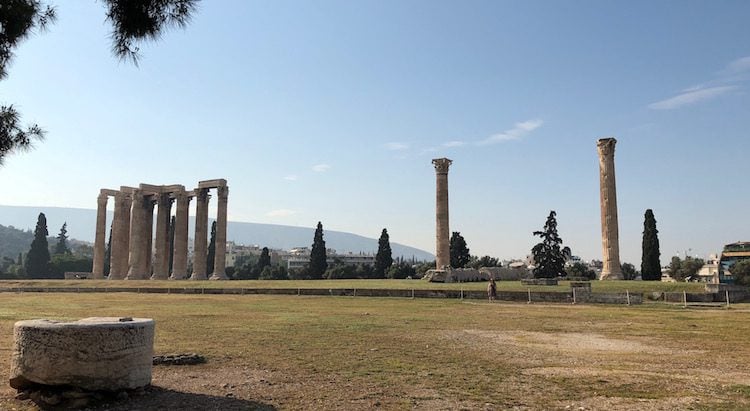
Our time with Zeus began upon arriving into Athens. Strange weather seems to follow us around when we travel, and in Athens that meant unseasonable thunderstorms and lots of rain. Upon settling into our lodgings we were greeted by jagged lightning bolts over the Parthenon and exhilarating claps of thunder. (We love, and miss, thunderstorms. We just don’t get them in Northern California.) It almost felt like a message: they built this for my daughter, but don’t forget who runs this place.
Zeus, while not always a central figure, always sort of loomed over us our first day in Athens. The great monuments of his children captured our attention, while our gaze was often directed upwards worried about when he might make the sky rumble again. And when the sky did flash with lightning again we retreated into a shelter dedicated to his son Dionysus. (In other words we went to a wine bar.)
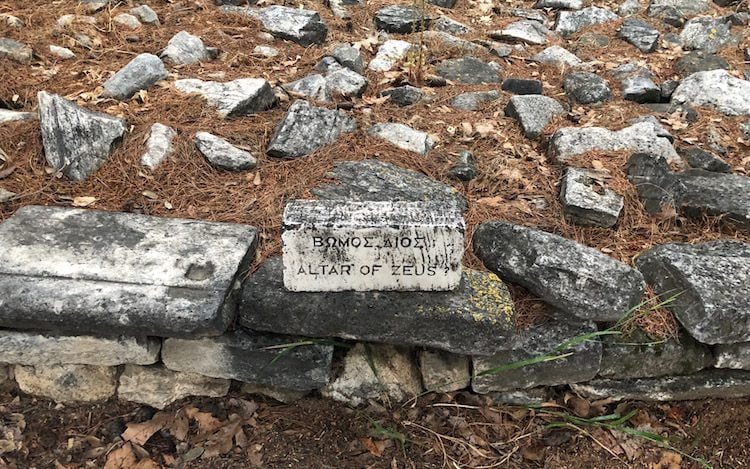
We began our second day in Athens at one of the great ruins dedicated to Zeus: the Temple of Olympian Zeus. The temple its self has a crazy history, and work on the temple continued on and mostly off until the year 132 CE when it was finally finished by Roman Emperor Hadrian. (Construction had originally begun in 520 BCE led by the tyrant Hippias, after he was deposed the temple remain unfinished due to his unpopularity and hubris.) Like most of the ruins of classical Greece, there’s not much left of the Temple, but there are sixteen HUGE columns that remain, though one lies upon the ground.
The Temple of Zeus is not the most well known or frequented ruin in Athens, but it is impressive. Pictures do not adequately capture its size. Due to the current distribution of the columns it’s possible to get an idea of just how big the temple must have been in its heyday. I made Ari walk up as close as she could get to the Temple and then stepped way back to capture her and most of Zeus’s pillars.
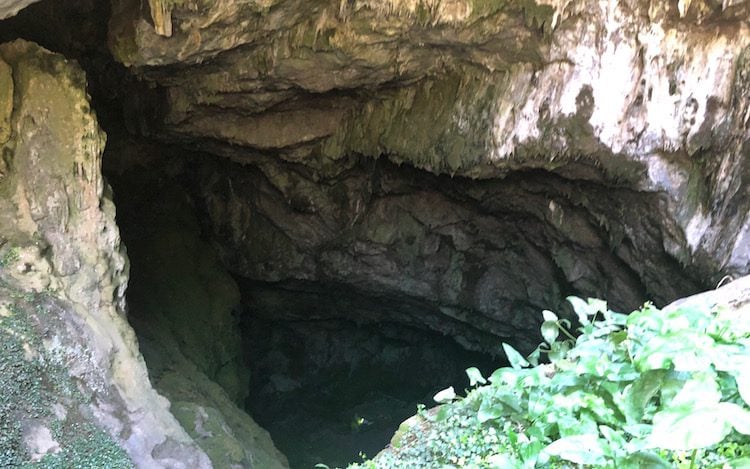
Nearly two weeks after our adventures with Zeus in and around Athens we visited one of the two spots on the Greek island of Crete where, according to legend, Zeus’s mother Rhea hid her infant son from Cronus. I have no idea if Zeus actually hid in Psychro Cave, but the cave was a site of worship and devotion for (at least) several hundred years. It’s an impressive site too, and it’s mighty stalactites and stalagmites certainly made me think of the mighty sky-god.
I’ve previously written about how some of the most sacred places in Ancient Greece left me feeling a little wanting, but the topography of Greece didn’t provoke those feelings. In the forests and mountains of Greece it was easy to picture brave heroes, jealous gods, satyrs, and most certainly a puckish Pan roaming the hillsides. And high atop Mount Olympus, looking down upon, and orchestrating it all, would have most certainly been mighty Zeus.
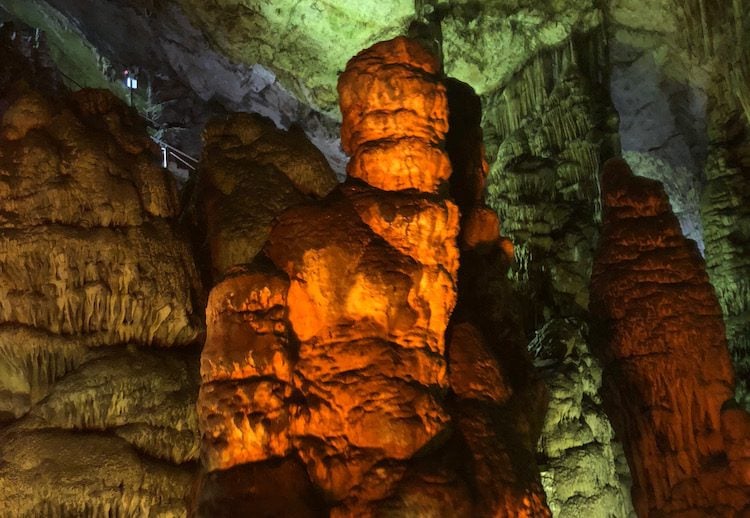
I’ll probably never be a devotee of Zeus in the way I serve several other gods, but I know that he’s out there. Perhaps he doesn’t reside among the columns in what remains of his Athenian Temple or in the cave where he was once hidden, but he certainly still thunders in the sky, reminding us all of his presence.
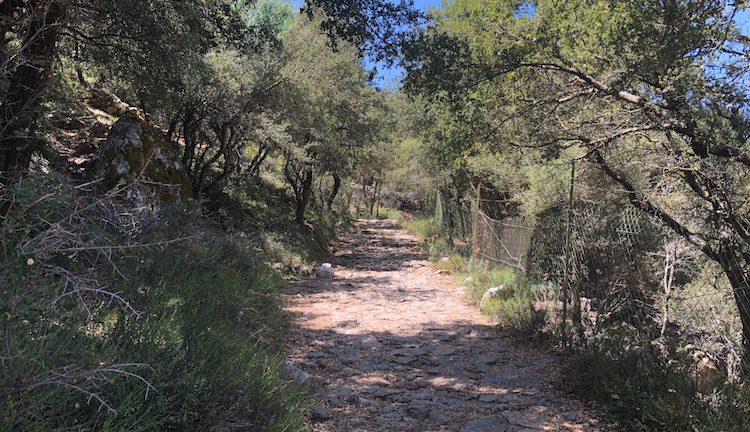
*Rumor has it that there was a remake not too long ago, I don’t believe that.













